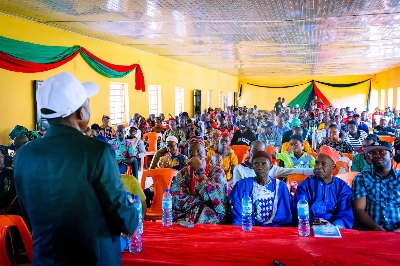The NNPC Foundation, the Corporate Social Responsibility (CSR) arm of NNPC Ltd., has extended its Vulnerable Farmers Training Programme to Northern Nigeria as part of efforts to boost food security, empower rural communities, and drive national development.
The initiative, now in its second phase, is designed to equip farmers with modern agricultural techniques, including climate-smart practices, organic fertilization, post-harvest loss reduction, and strategies for improved market access.
The first phase of the programme was held across the South-East, South-South, and South-West regions, where more than 4,000 farmers benefitted from training on innovative practices and market strategies. According to the foundation, the programme recorded significant success in helping farmers transition from subsistence-level production to more profitable farming.
ALSO READ Tinubu orders action on transport costs to crash food prices
ALSO READ NABG warns against adhoc measures in food price crash drive
The second phase will now cover the North-East, North-West, and North-Central geopolitical zones, with training sessions scheduled in six states across the regions, as well as the Federal Capital Territory (FCT), Abuja.
Managing Director of the NNPC Foundation, Mrs. Emmanuella Arukwe, explained that the programme aligns with the Federal Government’s agricultural transformation agenda, which aims to increase food production, enhance productivity, and improve livelihoods for smallholder farmers nationwide.
“At NNPC Ltd, we recognize that agriculture remains the primary source of livelihood for over 70% of Nigeria’s population. Yet, many farmers remain trapped in subsistence-level production due to limited access to modern techniques, quality inputs, and competitive markets. This training is designed to change that narrative,” Arukwe said at the flag-off of the first phase in Nsukka, Enugu State.
She noted that the ultimate goal of the initiative is to empower farmers with the skills, tools, and knowledge to scale up from subsistence farming to sustainable, commercial agriculture.


